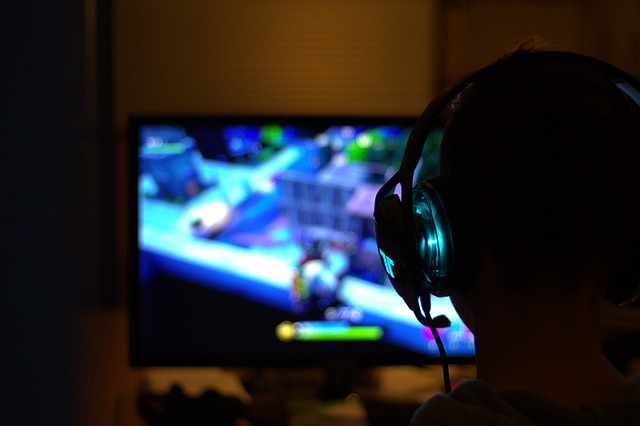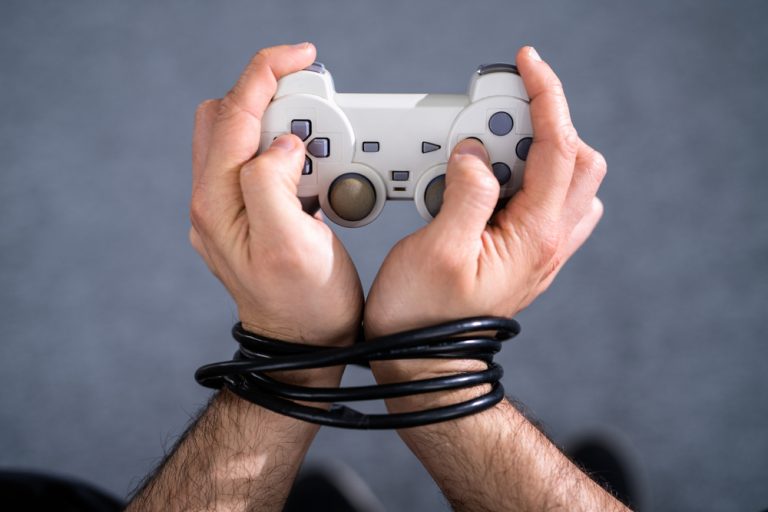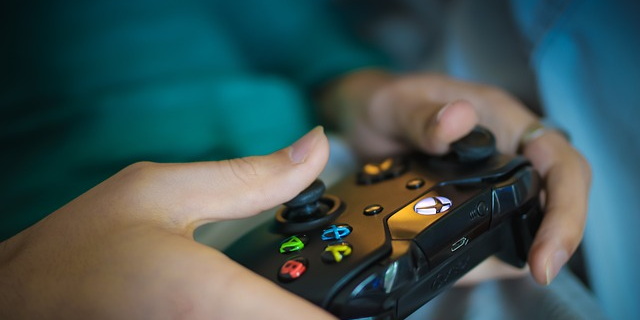In an increasingly digital world, it is easy to lose track of how much time we spend on our screens. This may partly explain why specific underlying mental health problems and challenges linked to digital devices seem to be on the rise. In particular, digital gaming has become a significant context in which problematic gaming behaviors and addiction can develop, contributing to conditions like pornography addiction, compulsive camping, internet gaming disorder and the topic of today’s article, video game addiction.
Video game addiction is not a new topic within the world of mental health. However, the topic seems to be stoking renewed interest due to the rise in gamer culture’s popularity and its increasing commercial and social acceptance.
At PCP, we have the knowledge, skills, and dedication to help you achieve full recovery from compulsive internet gaming disorder. Let’s examine what a video game is, the signs, what addictive behaviours may put you at risk, and how successfully managing this condition can improve your quality of life.
Key Takeaways
Video game addiction is defined as the excessive and obsessive usage of video games to the point of considerable impairment or suffering. The effects of video game addiction on mental and physical health are comparable to those of other behavioural addictions.
Signs and Consequences: The addiction’s widespread influence on day-to-day living is highlighted by vital signs such as an excessive obsession with gaming, a disregard for one’s obligations, both personal and professional and the persistence of gaming in the face of undesirable outcomes
Recovery Strategies: Recognising the problem, minimising exposure to gaming triggers, getting professional assistance, and substituting other activities for gaming behaviours are all necessary steps in overcoming video game addiction, with a focus on maintaining overall well being during recovery.

What Is a Video Game Addiction?
Video gaming addiction is a condition that’s been getting increasing interest over the last few years due to the rise in gaming culture. Severe gaming addiction is also called internet gaming disorder, recognised by the World Health Organisation and included in official diagnostic manuals. However, professionals within the mental health community are yet to agree on whether it is a recognised mental health condition or on exactly how to define it, and there is ongoing debate about whether video game addiction should be classified as a mental illness.
According to the American Psychiatric Association, video game addiction, as defined by the Diagnostic and Statistical Manual of Mental Disorders, Fifth Edition (DSM-5), is the steady and repetitive use of the Internet to play games frequently with different gamers, which leads to clinically significant distress and psychological changes as demonstrated by five or more criteria in a year.
The criteria mentioned in the definition include:
Constantly thinking about gaming most or all the time
Feeling bad when you can’t play
Having to spend an increasing amount of time gaming to enjoy the same pleasurable feeling
Finding it difficult to quit or reduce the amount of time spent gaming
Losing interest in other activities you previously liked doing
Having problems at work, school, or home because of your gaming
Continuing obsessive gaming behaviour despite the difficulties it causes you
Lying to those close to you about how much time you spend playing
Using gaming as a means to avoid thinking about unpleasurable emotions or situations
From this definition, there are two key points when identifying a video game addiction: a lack of control over recurrent gaming behaviour and some form of conflict within the gamer’s life due to this compulsive behaviour. Due to this, a video game addiction can also be considered a type of behavioural addiction.
A behavioural addiction is a form of dependence where a person is not addicted to a psychoactive substance but rather to a particular action or the feeling they experience when performing this action. Some other common forms of behavioural addictions include compulsive or gambling disorder, sex, drug addiction, television compulsion, and overeating.
Both substance use disorders (SUD) and behavioural addictions share the common traits of addiction: salience, mood modifications, tolerance, withdrawal, conflict and relapse. This means that even though video game addiction does not involve taking harmful substances, it can still lead to several physical, social, financial, and psychological negative consequences too.
How Does a Video Game Addiction Occur?

At its core, a video game addiction is quite similar to many other addictions. This means that the primary issue stems from a distortion of the brain’s reward system.
This involves changes in the brain’s reward system, which is mainly controlled by a neurotransmitter called dopamine. Dopamine is responsible for the pleasurable feeling we get when experiencing enjoyable actions like eating tasty food, having sex, passing an exam, and, unfortunately, dangerous activities such as drug use and excessive online gaming. Engaging in video games triggers dopamine release in the brain’s reward center, reinforcing the gaming behaviour and contributing to addictive tendencies.
The brains of people with video gaming addiction often release large amounts of dopamine when they play video games. Over time, the brain builds up tolerance to the repeated stimulation by dopamine. This may lead to compulsion loops, a situation where video game addicts become dependent on the dopamine rush they get when completing particular milestones within the game. Spending many hours gaming can contribute to the development of these compulsion loops and increased tolerance.
Another side effect of these frequent dopamine releases on the brain is that compulsive gamers typically have a higher threshold for excitement. This means that they usually lose interest in other activities aside from gambling and tend to get bored easily. This little threshold for boredom is vital because it is often one of the triggers for relapses or gambling binges.
Studies have also shown that long-term video game playing affects brain regions responsible for reward, impulse control, and sensory-motor coordination. A reduction in the areas of the brain responsible for activities such as decision-making, impulse control, and emotional regulation evidenced this.
How Common Is a Gaming Addiction?
Determining how common a serious gaming disorder or addiction is may be difficult because a video game addiction is not universally accepted as a mental health condition. However, studies have shown prevalence’s of gaming disorders ranging from as low as 1% to as high as 26% worldwide. Despite the widespread popularity of video games, only a small percentage of people who play video games develop an actual addiction.
Aside from the global prevalence online video games, the occurrence of video game addiction within different societies varies widely. This is due to several factors, such as how standard video games are within these cultures, accessibility to the Internet and gaming technology, acceptance of gaming culture, and even legal frameworks to prevent excessive gaming.
Signs You May Have Video Game Addiction

- Being excessively preoccupied with gaming. This does not only involve the time actively spent playing video games but also the time spent fantasizing about gaming, planning to play video games, or thinking about how much time playing video games you will have.
Prioritising playing video games over activities like eating, personal hygiene, or spending time with friends and family.
Difficulty in school or poor grades.
Getting into trouble at work due to your video gameplay.
Lying to hide your excessive video game activity.
Becoming defensive or irritated when people confront you about your frequent video game use.
Neglecting your other interests, such as sports or hobbies you previously enjoyed, due to excessive gaming.
Mood swings and major changes in character.
Developing symptoms of psychological withdrawal when unable to play video games, such as a feeling of loss, sadness, anxiety, or depression.
Using gaming as a means to escape painful emotions or situations, or to relieve negative moods.
Continuing to play video games despite the financial consequences.
Dangers of Video Game Addiction

Risk factors for other mental health conditions
Video games may seem harmless, but there’s a strong association between addiction and underlying mental health conditions like ADHD, anxiety, depression, and social phobia. Individuals with anxiety, depression, or low self control are at higher risk of developing gaming addiction. This is because many health professionals consider some forms of behavioural addictions, such as pathological gaming, as a form of maladaptive coping mechanism to mental health challenges like anxiety and depression. This means gaming addictions can worsen these conditions or make it more challenging to obtain the help you need.
Noise-induced hearing loss
Noise-induced hearing loss is also one of the dangers associated with excessive gameplay. Studies have shown that exposure to unsafe noise levels for an extended period can lead to hearing damage. This is especially true for gamers who use headsets or play online games at high-intensity noise levels.
Sleep disturbances
Gaming addictions are also associated with sleep disturbances, such as withdrawal symptoms such as insomnia and daytime drowsiness. This is due to several factors, like staying up late at night playing video games or preparing for gaming events, spending an extended amount of time around screens, which disrupts the sleep-wake cycle, and other conditions that might be associated with sleep disturbances like anxiety and depression. It is important to regulate screen time, as too much screen time can negatively impact sleep quality and overall health.
Educational challenges
Unfortunately, unlike other behavioural addictions, gaming addictions are common among children, teens and young adults. Due to this, it may hurt academic achievement, learning attitude and school attendance. Even in school, the constant need for gaming may also be disruptive in the classroom.
Poor financial decision-making
Adults with gaming addiction may spend unreasonable amounts of money on purchasing video games, in-game microtransactions, expensive trips to gaming conventions, and so on. Their gaming addiction may also cause strain at their place of employment, leading to lost wages and even unemployment.
Straining family relationships
All the factors mentioned above can combine to put a strain on family relationships. Excessive gaming can also negatively impact real life relationships, leading to a loss of interest or disconnect from personal connections outside the game. These conflicts could be among siblings, parent-child relationships, or even couples. This may cause conflict, divorce, and even estrangement between family members.
Who Is at Risk of Developing a Gaming Addiction?
Males are more likely to develop a video game addiction or experience a gaming problem than females.
Video game addictions and possible video game addiction are more common among kids, teens and young adults.
Having other mental conditions can increase your risk of developing a gaming problem or possible video game addiction.
Other essential factors include Internet availability, social norms, and economic factors.
How To Conquer a Video Game Addiction

Accept that you have a problem
The first step to treating addiction well is recognizing that your excessive use of video games negatively affects your life and those around you. Addiction denial is a widespread problem among video game addicts and may stop you from seeking the help you need.
Here’s what addiction denial may look like:
Attempts to brush off the impact of your video game addiction in your life.
Comparing your gaming habits to other players.
Blaming others for your compulsive gaming habits.
Trying to rationalize your need to play video games.
Avoid boredom
Many compulsive gamers have become accustomed to constant stimulation and struggle with prolonged inactivity. This means they have a low threshold for boredom and often fall back to video games when faced with dull tasks. This includes comparing boredom with internet games to healthy activities like hobbies, meditation, yoga, sports, and physical activities.
Reduce your exposure to triggers
Many compulsive gamers often use video and computer games to escape stressful situations or uncomfortable emotions. Developing healthier coping mechanisms for stress can help you overcome compulsive gaming. Some common triggers for people with a video gaming session or game addiction include gaming conventions, major game releases, and gaming competitions. Managing access to gaming devices and setting clear limits on gaming time can also help reduce exposure to these triggers and support healthier routines.
Be open about your struggles
Like most addictions, a video game addiction also seems to have a certain stigma around it. This may be because society tends not everyone not to downplay the severity of the condition, unlike substance use disorders. This makes people feel embarrassed or shameful about revealing their struggles with compulsive gaming.
Therefore, it is essential to be open about your struggles, progress, and failures. Having a trusted confidant can help you identify your triggers and the warning signs of an impending relapse even before it occurs.
Seek community support
Peer support groups and 12-step programs like Gaming Addicts Anonymous (GAA) can help gamers prevent relapse by encouraging accountability and creating a safe space to share their challenges, successes and insights concerning their addiction. They also build a sense of community, which is important because loneliness is one of the most common triggers of addiction relapse.
Professional counselling and therapy
Seeking professional help is very important during your recovery process. If you notice signs of gaming addiction, consider reaching out to a mental health professional, such as a psychologist or psychiatrist, who can provide specialized support. Therapy can offer you some of the skills and tools you need to cope with the temptations you are likely to face in real-life situations.
There are treatment options, which are various forms of therapy for gaming addiction, like cognitive behavioural therapy (CBT), psychodynamic therapy, family therapy, and even group therapy sessions.
How To Prevent a Gaming Addiction
Set strict time limits for gaming-related activities and take regular breaks in between to prevent excessive gameplay. Practice self control to help manage your gaming habits and avoid developing problematic behavior.
Create a daily or weekly schedule that clearly outlines the time dedicated to gameplay. Ensure that it is balanced with other activities like school, work, physical exercise, or socializing, so that gaming does not interfere with your responsibilities in daily life.
Keep gaming consoles and technology out of your bedroom.
Participate in hobbies and other activities that help keep your mind engaged.
Be open about your video game habits.
Avoid other individuals who have problematic gaming habits.
Finally
Gaming addiction is a rising concern in our increasingly digital world. The widespread accessibility of the internet and gaming technology and the growing global acceptance of gaming culture are some of the driving factors behind this trend. The World Health Organization has recognized gaming disorder as a diagnosable mental health condition, but research into its effects and classification is still in the early stages, and further study is needed to reach a full scientific consensus. However, gaming use is just like any other behavioural addiction, an internet addiction or gaming addiction. It can be managed through therapy, counseling, and lifestyle modifications.
We at PCP – The Perry Clayman Project – have a variety of rehabilitation clinics across the UK for those seeking recovery from behavioural addictions like gambling disorders. Learn more by calling 08000 380 480.
Author
-
Perry is the founder of Rehab Today by PCP and opened the first treatment centre at Luton in 2004.
Perry’s background apart from his own personal struggle with addiction over 20 years ago is in the recruitment industry where he started his career and became Finance Director of a UK PLC and in the late 90’s was part of a new start up and became the leading recruitment consultancy in Intellectual Property across Europe.
Perry is passionate about recovery from addiction and liaises with family members to coordinate admissions, often sharing his own experience to help people when they first admit into treatment. Most certainly the driving force behind the success of Rehab Today by PCP which now boasts 60 primary and 68 move on beds in all locations. Perry is a keen fitness fanatic and Arsenal fan!
View all posts








